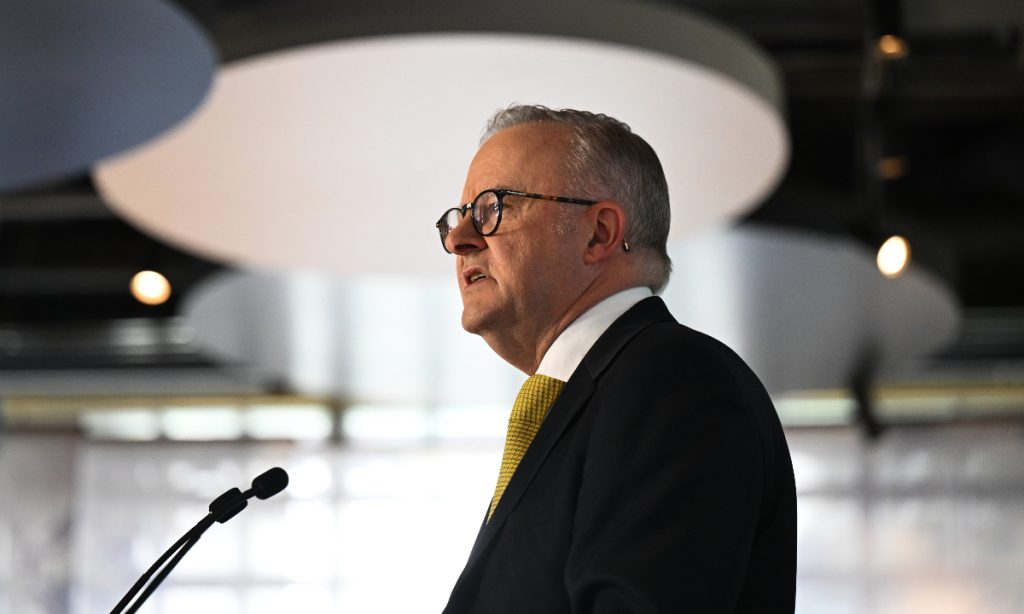Australian PM says dialogue with China matters for Australian economy, regional security

"Dialogue with China matters. For jobs, our economy and the security of our region," visiting Australian Prime Minister Anthony Albanese said in a post on X platform on Friday.
"One in four Australian jobs depends upon our trade and the most important trading partner is China. We have worked very hard to stabilize the relationship that brought benefits with over $20 billion of trade resuming. We signed agreements for further two way trade and in addition to that, we agreed on the promotion of two way tourism as well," Albanese said in a video attached with the post.
Albanese's China trip, which began Saturday and ends on Friday, is extraordinarily long compared with Australian state visits over the past decade and marks a normalization of bilateral relations that plumbed new depths under the previous Australian government's nine-year reign, AP reported on Thursday.
According to an official statement published on Australian government website on Friday, Albanese's visit was an opportunity to continue advancing Australia's security and economic interests. Wise management of this relationship is crucial for Australia's future prosperity and for the security of our nation and the stability of our region.
"Australia's approach to our relationship with China remains patient, calibrated and deliberate. Dialogue is central to a stable and constructive relationship," the statement said.
During Albanese's visit, China and Australia signed a memorandum of understanding (MoU) on the implementation and review of China-Australia Free Trade Agreement on Tuesday, according to the Chinese Ministry of Commerce (MOFCOM), Xinhua reported.
As 2025 marks the 10th anniversary of the agreement, the two countries will maintain close cooperation, continue high-quality implementation of the agreement, and jointly conduct a review to identify areas for further improvement or expansion, the MOFCOM said.
The goal of Albanese's visit to China can be summarized as seeking progress while maintaining stability, as he aims to advance the stability and development of China-Australia relations through dialogue, Chen Hong, director of the Asia Pacific Studies Centre at East China Normal University, told the Global Times on Friday.
"Given the current turbulence and uncertainty in the international situation, both China and Australia, along with other regional countries, hope to work together to pursue predictability and stability," Chen added.
Albanese paid an official visit to China from July 12 to 18, traveling to Shanghai and Beijing, with Chengdu being the final leg of his trip.
Bloomberg said Albanese's six-day visit to China was a diplomatic reset that marks the full restoration of trade ties after years of friction. While the trip was framed around economics, the stakes were far broader, as tensions simmer over Taiwan question, defense, and Australia's balancing act between its biggest trading partner and its key security ally, the US, according to the US media outlet.
The future of China-Australia relations will be on a positive trajectory. However, what Australia needs to do is to eliminate external interference, particularly from third parties and domestic right-wing forces, in order to work with China to ensure that the bilateral relationship remains stable and sustainable, Chen noted. "Only with stability can long-term progress be achieved, and stability is the foundation for realizing ambitious goals."